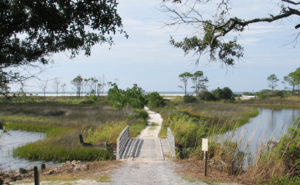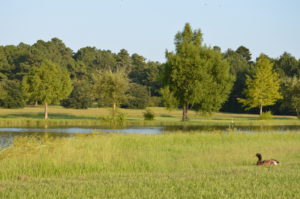If you live in the rural areas of the Florida Panhandle and surrounding areas, you’ve likely had to deal with the determined, seemingly Houdini-like rascals that are raccoons. There are two easy, DIY recipes you can use to repeal curious raccoons from your home, porch, and other areas you’d rather keep wildlife-free.

- Mix together (1) bottle hot sauce or cayenne powder, (1) gallon of water, and (1) teaspoon of dish soap. Once mixed, add to a spray bottle and spray on the entire area that you would like to keep raccoons out of (ex. entire porch including doors, trash bins and their surrounding areas, etc.).
- Put apple cider vinegar into a bowl, then place a rag in the bowl. Place the bowl near where the raccoons are a problem/entering, and let the rag soak overnight.



 Support the local Gulf Coast State College students artists this week by visiting the Student Art Show. The show will be held in the Student Union Building at
Support the local Gulf Coast State College students artists this week by visiting the Student Art Show. The show will be held in the Student Union Building at 

 Yesterday was the first of four dates that Rebuild Florida Housing Repair and Replacement program came to the Blountstown Public Library. If you are a homeowner with damage from Hurricane Michael, you are encouraged to apply for housing repair assistance.
Yesterday was the first of four dates that Rebuild Florida Housing Repair and Replacement program came to the Blountstown Public Library. If you are a homeowner with damage from Hurricane Michael, you are encouraged to apply for housing repair assistance. Today is National Take a Walk in the Park Day! This is a day to slow down, clear your mind, re-energize, and improve mental and physical health by visiting a local park be it community, urban, national, or state. Did you know that Greenland’s National Park is the largest in the world? It covers an area of 604,000 miles!
Today is National Take a Walk in the Park Day! This is a day to slow down, clear your mind, re-energize, and improve mental and physical health by visiting a local park be it community, urban, national, or state. Did you know that Greenland’s National Park is the largest in the world? It covers an area of 604,000 miles!
 Have you heard the good news? The State of Florida Timber Block Grant’s registration deadline has been extended to April 30th! The Florida Timber Recovery Block Grant Program (“TRBG”) is available to timber producers who suffered timber damage as a result of Hurricane Michael; compensation for the crop loss is provided to producers that meet the eligibility requirements. The program is managed by the Florida Division of Emergency Management in conjunction with the Florida Department of Agriculture and Consumer Services and the US Department of Agriculture. If eligible, you may receive up to $608 per acre for pine and up to $714 per acre for hardwood. Repayment is not required.
Have you heard the good news? The State of Florida Timber Block Grant’s registration deadline has been extended to April 30th! The Florida Timber Recovery Block Grant Program (“TRBG”) is available to timber producers who suffered timber damage as a result of Hurricane Michael; compensation for the crop loss is provided to producers that meet the eligibility requirements. The program is managed by the Florida Division of Emergency Management in conjunction with the Florida Department of Agriculture and Consumer Services and the US Department of Agriculture. If eligible, you may receive up to $608 per acre for pine and up to $714 per acre for hardwood. Repayment is not required.